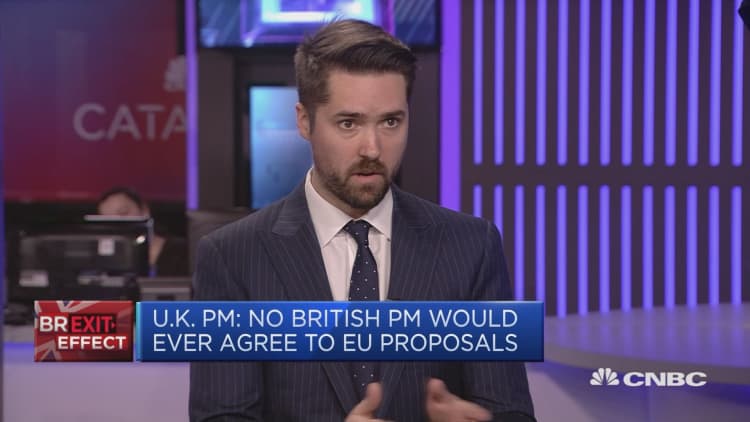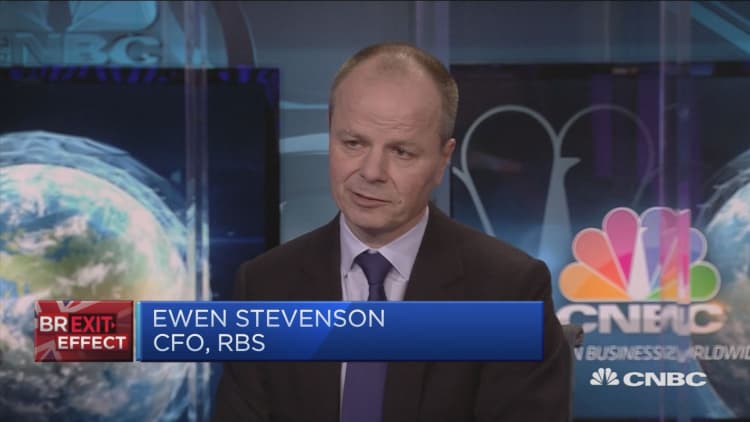British Prime Minister Theresa May is set to deliver a key speech on Friday outlining her plans for how the U.K.'s post-Brexit relationship with the European Union (EU) will work.
However, analysts expect that May will fail to provide enough detail to please the EU, potentially setting negotiations on a collision course.
"Expectations for the speech are high… But despite the high expectations, I think we will be disappointed. I don't think she will be able to give the clarity many in the EU27 and Michel Barnier hope," Rem Korteweg, head of unit Europe in the World at think-tank Clingendael, told CNBC via email.
The EU has criticized the U.K. government often for failing, it says, to provide enough clarity on how Britain sees its future relationship with the EU.
On Wednesday, the EU's chief negotiator Michel Barnier said that to successfully end negotiations by the March 2019 deadline, both sides need to accelerate their efforts.
"I think (May's speech) will be short on detail. This will infuriate a number of capitals," Fabian Zuleeg, chief economist at the Brussels-based European Policy Centre, told CNBC via email.
What will May say?
There have been a series of Brexit-related speeches from members of the U.K. government, such as foreign affairs minister Boris Johnson, ahead of May's Friday address, but no concrete detail has been given so far, frustrating European capitals and putting May's speech further under the spotlight.
"I am expecting her to say that the United Kingdom is seeking a deep and special partnership with the EU post-Brexit and that is a bespoke relationship which cannot be compared to any other existing model," Zuleeg said.

This has been May's message in previous addresses. But the EU wants to know how the U.K. wants to trade, given that London doesn't want to do so under the rules that currently govern their commercial ties.
"She may call for a system of 'managed divergence,' but the EU — through presidents (Donald) Tusk and (Jean-Claude) Juncker — have already dismissed this option as 'cherry-picking,'" Korteweg said.
In an attempt to bridge differences inside her government, May has come up with the concept of "managed divergence" – where Britain takes back control over rules and regulations, but maintains the equivalent high goods standards with the EU in key areas to protect trade and jobs. However, officials in Brussels have said that such approach is based on "pure illusion."
What Irish border?
A key issue that the EU is seeking further detail on the future of the border between Ireland and Northern Ireland.

On Wednesday, Barnier said that Northern Ireland should remain under EU rules after Brexit, adding that the "backstop" agreement for this had been reached in December. But May has already replied saying this would be unacceptable.
However, Ireland and the rest of the EU have said it's up to the U.K. to come with a solution for the border and that, without one, Northern Ireland will remain under EU legislation.
Until further detail is made available from London, Zuleeg said that it is likely Brexit negotiations will "default" to something similar to Canada's trade deal with the EU. This would mean that the U.K. would be outside of the EU and its laws but, at the same time, businesses would likely face some tariffs that currently they do not.


